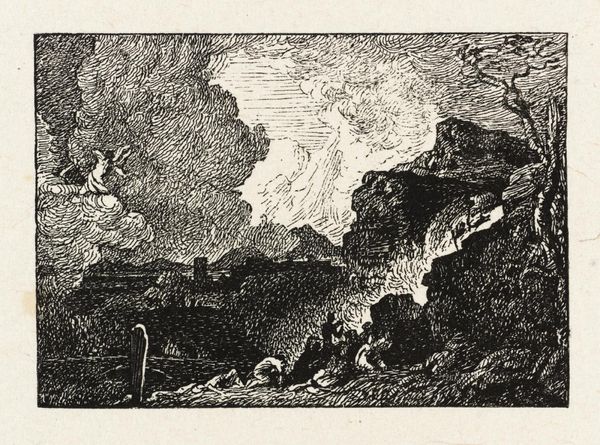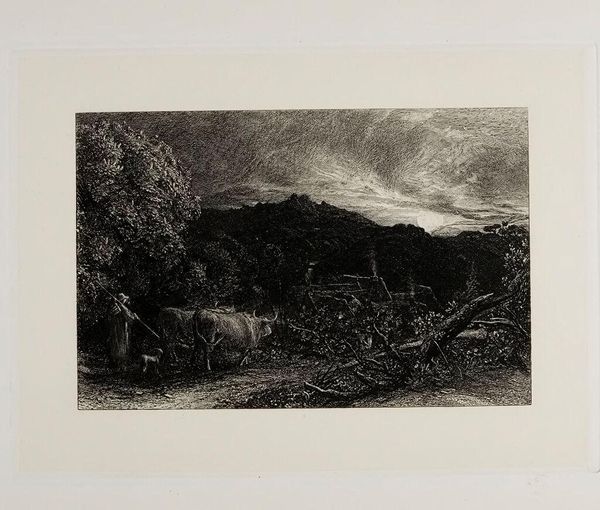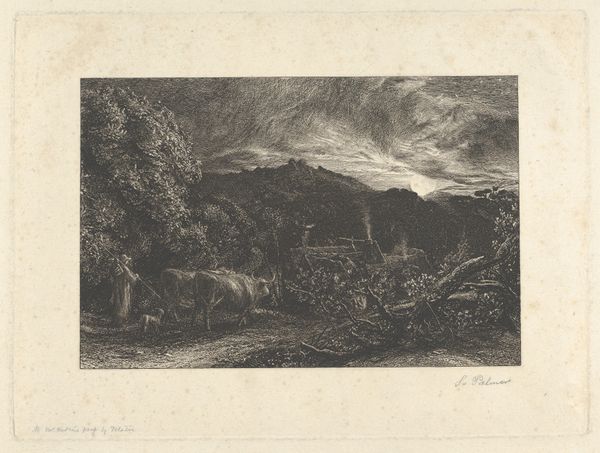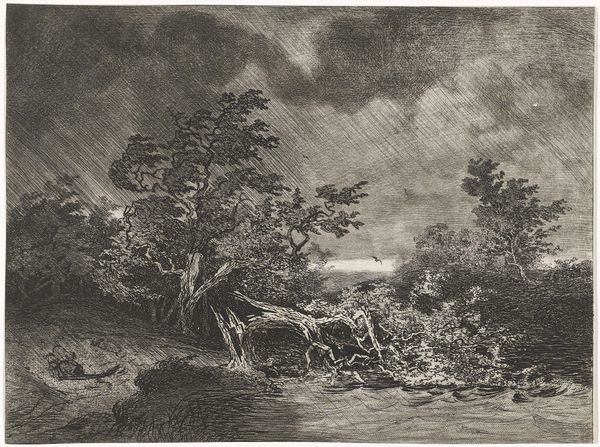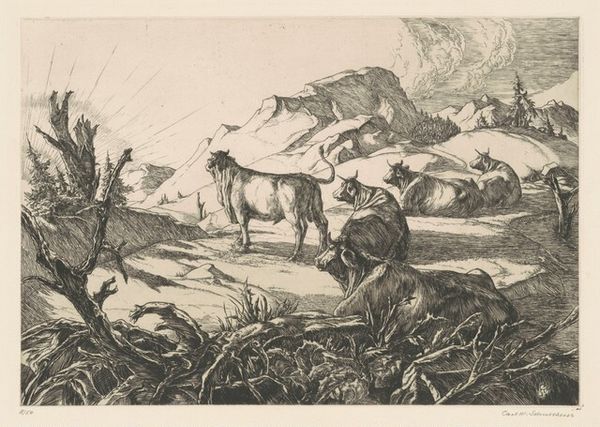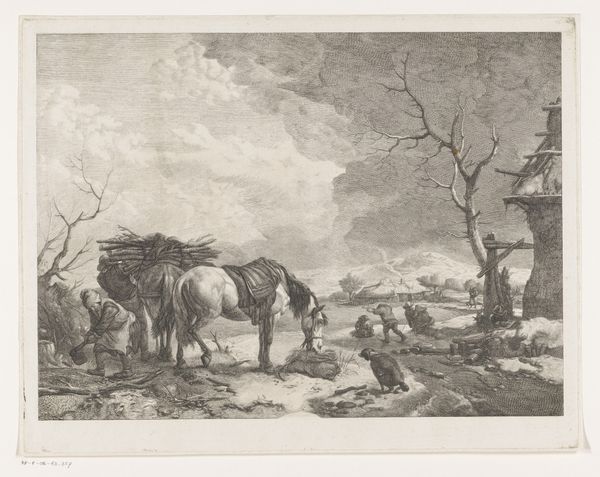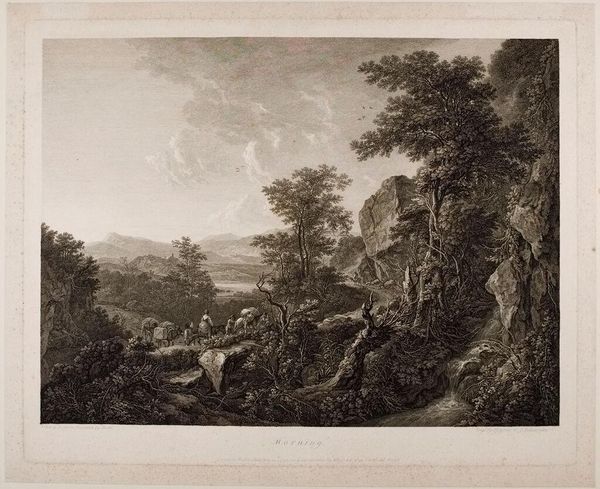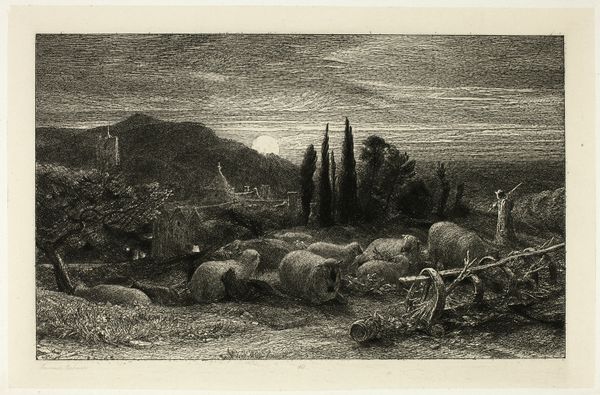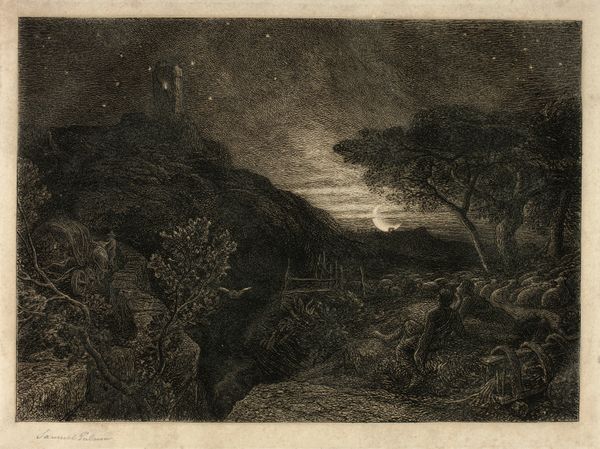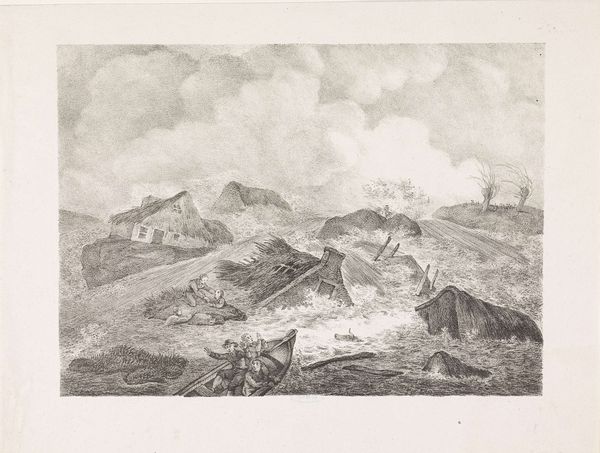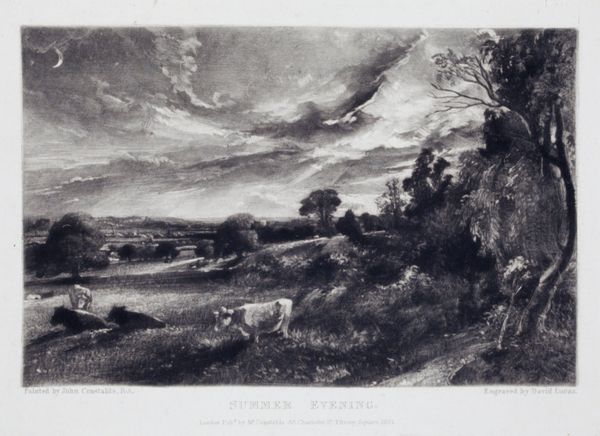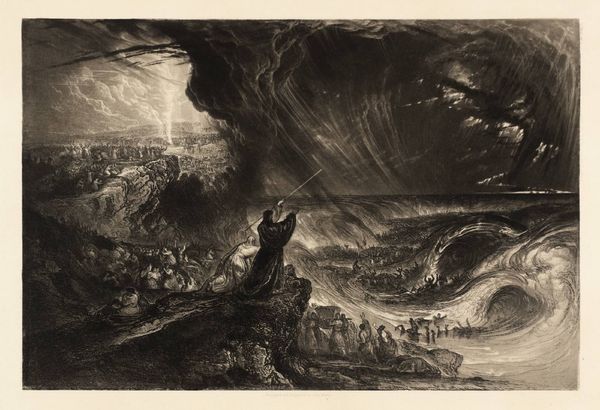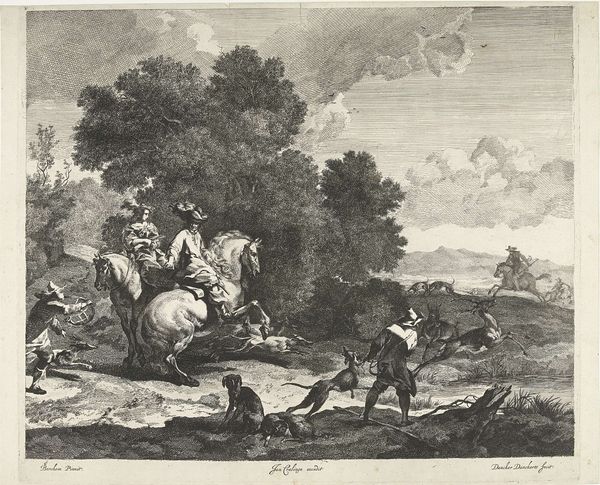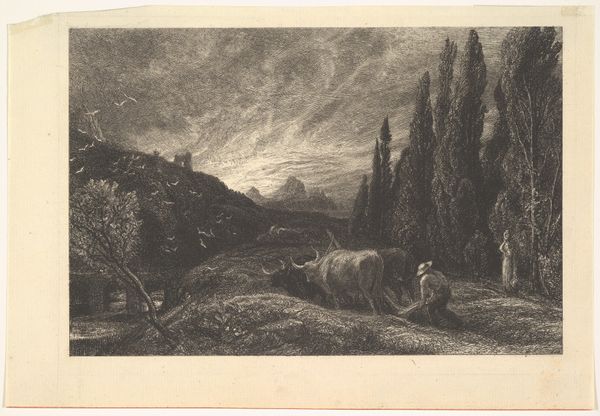
drawing, print, etching, photography
#
drawing
# print
#
countryside
#
etching
#
landscape
#
figuration
#
nature
#
photography
#
romanticism
#
surrealism
#
genre-painting
Copyright: Public domain
Samuel Palmer created "The Weary Ploughman" in 1858, using etching to evoke a landscape steeped in twilight. The composition, dominated by dark, dense textures, invites a mood of quiet reflection, almost melancholy. Palmer's intricate use of line and tone creates a rich interplay of light and shadow. Look how the moon, a soft, luminous orb, punctuates the darkness, casting long shadows that amplify the scene's mysterious quality. This contrast isn't just visual; it hints at deeper themes of labor, rest, and the cyclical nature of life. The figure of the ploughman, returning home, symbolizes the end of a day's work, but it also prompts broader contemplation about our place within the natural order. Ultimately, "The Weary Ploughman" isn’t merely a pastoral scene. Instead it's an exploration of emotional and existential states through form. The landscape operates as a sign system, where each stroke and shadow contributes to a larger narrative about human experience and the passage of time.
Comments
No comments
Be the first to comment and join the conversation on the ultimate creative platform.
